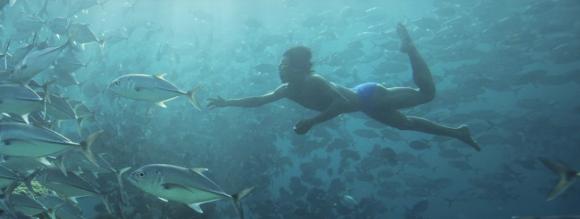 The Bajau people of Indonesia, the Philippines, and Malaysia have lived for centuries at sea as hunter-gatherer nomads. They can spend up to five hours a day underwater, diving for fish, octopus and other seafood. The Bajau do not use any sort of diving gear but simply hold their breaths. Some claim that some Bajau divers can swim underwater for as long as 13 minutes at depths over 200 feet. How is this possible?
The Bajau people of Indonesia, the Philippines, and Malaysia have lived for centuries at sea as hunter-gatherer nomads. They can spend up to five hours a day underwater, diving for fish, octopus and other seafood. The Bajau do not use any sort of diving gear but simply hold their breaths. Some claim that some Bajau divers can swim underwater for as long as 13 minutes at depths over 200 feet. How is this possible?
Now, scientists think that they may have found the answer. The Bajau appear to have developed very large spleens, roughly 50 percent larger than average. Spleens? Yes, spleens.
NPR quotes Rasmus Nielsen, a population geneticist at the University of California, Berkeley who led the new research. “The spleen has a reservoir of oxygenated red blood cells. When individuals go diving, it contracts and these oxygenated red blood cells are released into the bloodstream.”
Underwater, these red blood cells continue to distribute oxygen to organs to maintain basic human function. A larger spleen means the Bajau have a higher reservoir of red blood cells and can stay underwater longer. In fact, Nielsen estimates a 50 percent larger spleen amounts to 10 percent more red blood cells to exploit when diving.
